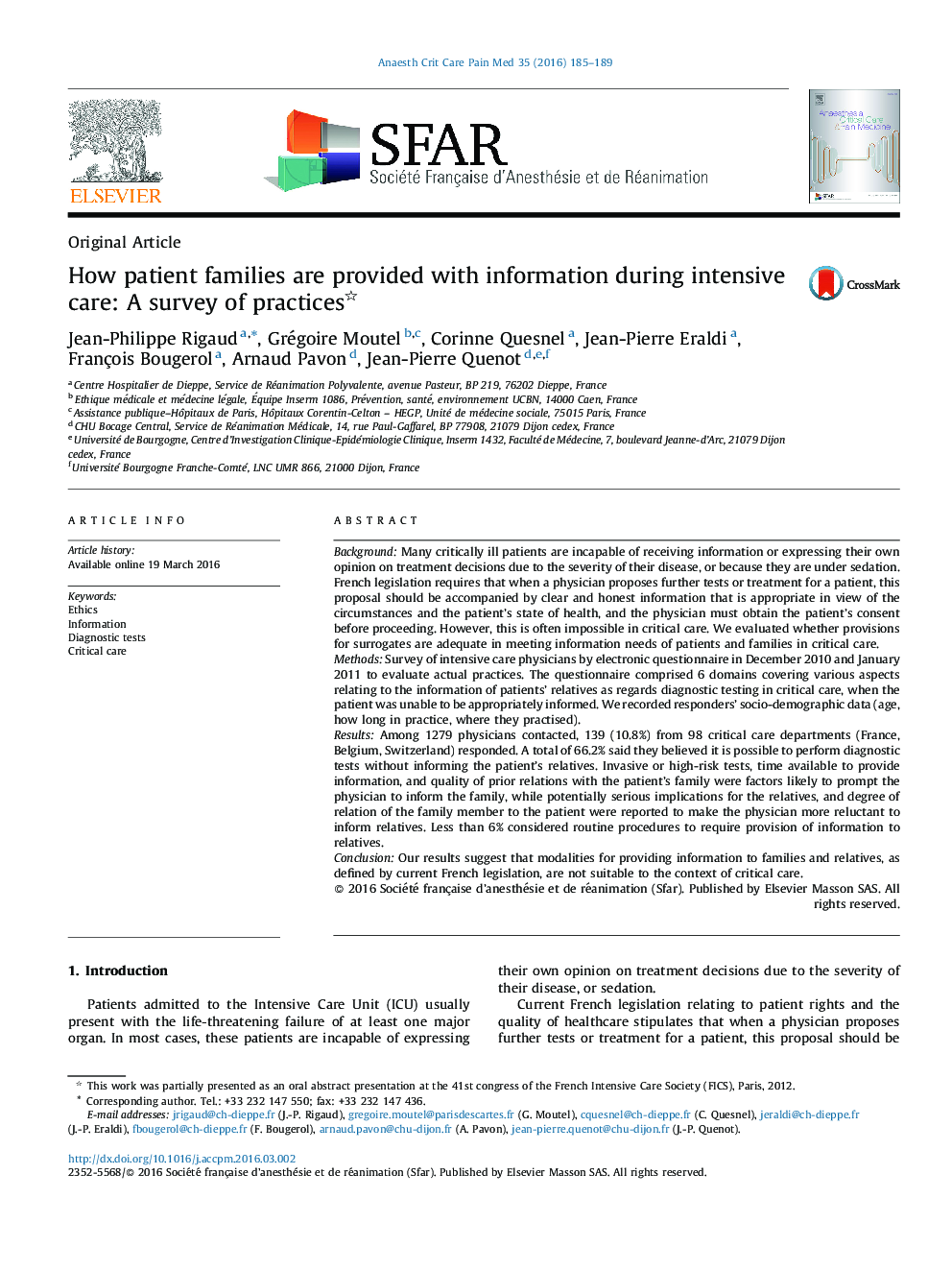| کد مقاله | کد نشریه | سال انتشار | مقاله انگلیسی | نسخه تمام متن |
|---|---|---|---|---|
| 2741874 | 1148566 | 2016 | 5 صفحه PDF | دانلود رایگان |
BackgroundMany critically ill patients are incapable of receiving information or expressing their own opinion on treatment decisions due to the severity of their disease, or because they are under sedation. French legislation requires that when a physician proposes further tests or treatment for a patient, this proposal should be accompanied by clear and honest information that is appropriate in view of the circumstances and the patient's state of health, and the physician must obtain the patient's consent before proceeding. However, this is often impossible in critical care. We evaluated whether provisions for surrogates are adequate in meeting information needs of patients and families in critical care.MethodsSurvey of intensive care physicians by electronic questionnaire in December 2010 and January 2011 to evaluate actual practices. The questionnaire comprised 6 domains covering various aspects relating to the information of patients’ relatives as regards diagnostic testing in critical care, when the patient was unable to be appropriately informed. We recorded responders’ socio-demographic data (age, how long in practice, where they practised).ResultsAmong 1279 physicians contacted, 139 (10.8%) from 98 critical care departments (France, Belgium, Switzerland) responded. A total of 66.2% said they believed it is possible to perform diagnostic tests without informing the patient's relatives. Invasive or high-risk tests, time available to provide information, and quality of prior relations with the patient's family were factors likely to prompt the physician to inform the family, while potentially serious implications for the relatives, and degree of relation of the family member to the patient were reported to make the physician more reluctant to inform relatives. Less than 6% considered routine procedures to require provision of information to relatives.ConclusionOur results suggest that modalities for providing information to families and relatives, as defined by current French legislation, are not suitable to the context of critical care.
Journal: Anaesthesia Critical Care & Pain Medicine - Volume 35, Issue 3, June 2016, Pages 185–189
